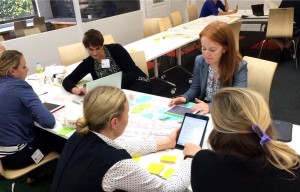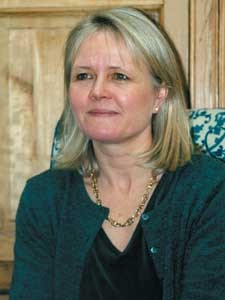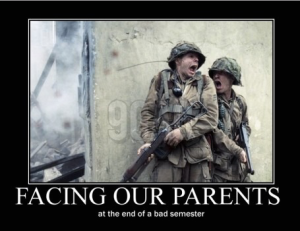 I write this from Sydney airport, where I’m waiting to fly home after another fascinating and enjoyable trip working with a whole range of schools and speaking at conferences. The trip has reaffirmed my belief that the sustainable future of schooling lies, not in following top-down edicts, but in schools working collaboratively to self-improve.
I write this from Sydney airport, where I’m waiting to fly home after another fascinating and enjoyable trip working with a whole range of schools and speaking at conferences. The trip has reaffirmed my belief that the sustainable future of schooling lies, not in following top-down edicts, but in schools working collaboratively to self-improve.
At the start of the trip I spoke at the New South Wales Conference for government schools held in Sydney’s former Olympic stadium. Alongside two great keynoters (Richard Gerver and Dan Haesler) I did my bit, and people seemed to like it. But, for me, the real highlight was hearing from schools in NSW who were honestly sharing their innovations – what worked, what they’d learned from what didn’t work. There’s some great dedicated teachers and leaders in NSW public schools, and it was great that the department had given them such a great venue, and a platform to show what they’d been working on.
I followed this by speaking at telecoms giant Telstra’s Education Now conference. Here was a learning commons in action. I met learning analysts, Telstra comms experts and other edu-tech companies and lots of educators who recognise that schools alone can’t innovate at the rate they need to (in order to keep pace with social learning) unless they join forces with the allies that they have in these associated disciplines. It was a great few days, and I sense that Telstra are in it for the long haul, not just to sell ‘kit’.
As much as schools need those external challengers and supporters, however, what goes on in the classroom is still their domain, and there’s no cavalry coming over the hill, no Superman waiting in the wings. There’s not even a government minister who can tell them how to teach. So, it was especially pleasing to facilitate some workshops (in Sydney, Canberra and Adelaide) where the focus was upon identifying what I call ‘promising practices’, and then seeing how they could be turned into tools that other teachers could use.
At each of these workshops the enthusiasm was palpable. There’s nothing better, to analyse your own practice, than to see how you’d transfer it to another professional’s practice – so creating tools is a really useful exercise. We called this a tools ‘hackathon’, in part inspired by Mark Zuckerberg’s Facebook hackathons where people across disciplines would spend intensive week-ends together, fixing bugs or testing out new apps.
And what practices these teachers worked on! Here’s just a sample of the tools these educators started to produce:
A guide to how to run student-led conferences in order to replace the one-sided, grades-dominated conversations that parents usually have with teachers;
An app that supports teachers of students with particular needs in setting appropriate goals and suitable interventions;
A simple guide to risk assessment that is carried out by primary children (rather than telling them ‘this is safe/this is not safe’);
A guide to co-constructing assessment rubrics with students (so they don;t ask ‘why are we learning this?’);
An introduction to nature-based learning for parents of kindergarten kids;
A guide to systematising community connections – how to make the most of employers, parents and community orgs with your school;
Engaging parents and community as co-learners, particularly for parents whose first language isn;t English;
A kit to enable students to carry out their own IT hackathon.
Most importantly, at the end of each day, schools committed to working with each other to see these tools through to completion, and then to testing their effectiveness. Having critiqued others prototypes, most schools were already invested in the emerging tools, so it was no surprise that so many agreed to bring these innovations into their own schools.
How many of these will eventually see the light of day? I’m not sure that matters. After all, one fo the world’s most inventive companies, 3M, has a 50% failure rate, yet still leads its field. So, if even half of these tools make it to ‘market’ it will have been a really useful process.
But the point is this: if we want teachers to continually improve their practice, we have to support them in being learning designers – not just deliverers. And we can only do that by, firstly, making time for these kinds of events and , second, by creating an environment where collaboration, not competition, is rewarded.
]]> It’s been a bad week for music teachers. The jailing of Philip Pickett for the horrendous historic abuse of students at the Guildhall School of Music and Drama, comes after 4 other instrumental teachers have been prosecuted during the past 12 months for abuses at the Royal Northern College of Music, and Chetham’s and Purcell specialist schools. Emerging allegations at other schools suggest that the abuse of students was far from exceptional during the 1980s and 1990s. Perhaps just as disturbing was the unwillingness of the conservatoires and specialist schools to react to allegations at the time – a family whose daughter was taught by Pickett, in 1984, were told by the Guildhall to look elsewhere for a tutor as ‘no one else had complained’. We’d all like to think that this sort of thing has been consigned to history, but the truth is we can’t be sure, such is the private nature of instrumental tuition.
It’s been a bad week for music teachers. The jailing of Philip Pickett for the horrendous historic abuse of students at the Guildhall School of Music and Drama, comes after 4 other instrumental teachers have been prosecuted during the past 12 months for abuses at the Royal Northern College of Music, and Chetham’s and Purcell specialist schools. Emerging allegations at other schools suggest that the abuse of students was far from exceptional during the 1980s and 1990s. Perhaps just as disturbing was the unwillingness of the conservatoires and specialist schools to react to allegations at the time – a family whose daughter was taught by Pickett, in 1984, were told by the Guildhall to look elsewhere for a tutor as ‘no one else had complained’. We’d all like to think that this sort of thing has been consigned to history, but the truth is we can’t be sure, such is the private nature of instrumental tuition.
Conservatoires and specialist schools are intense, hermetically sealed environments. I’ve worked in them and always considered it a privilege to work with students who were so committed to being as good as they could be. But that dedication lends itself to an imbalance of power in the relationships between tutor and student. I’ve never hired anyone remotely like J K Simmons’ compellingly vicious Terrence Fletcher in the Whiplash movie, but I’ve seen scores of students like Miles Teller, the drummer who practices till his hands bleed, in order to please Fletcher.
Young musicians will often choose the school they wish to study at, purely on the basis of who will be their specialist instrument teacher and how much time they will spend in their company. This can persuade such teachers that they have an unhealthy amount of prestige and power. When I worked at the Liverpool Institute for Performing Arts in the 1990s, we tried to abolish one-to-one tuition. The tutors were willing to teach in small groups, but it was the students who insisted upon their ‘me’ time.
I believe the time has come for music education organisations to call for the banning of individual tuition. Philip Pickett raped students in soundproofed studios – we cannot provide the circumstances which allow for the possibility of such horrors happening again. I’m not aware of any evidence which demonstrates the superiority of individual tuition over, say, small group teaching, so why do we continue to champion it? Ironically (or perhaps not) the academic who is the leading expert in instrumental-vs-group tuition is the Guildhall’s current Vice-Principal, Prof. Helena Gaunt. I dug out a terrific paper Helena wrote on individual tuition, in 2007. In the light of this week’s jailing of Philip Pickett, some of the concerns she raised then make for unsettling reading.
Music schools compete for the best students, so it would take concerted action by all of our schools to get rid of individual tuition. But I believe we owe it to vulnerable, dedicated, music students to prevent the abuses of power, and of their trust, which can ruin lives.
]]>
via betanews.com
I’m supposed to be a learning futurist, so allow me to make a prediction: within 10 years the university dissertation will be dead. Its death will be greeted with relief by academics who are currently turning a blind eye to the rising trend of ‘outsourcing’ of dissertations and essay writing.
We’ve got a perfect storm of circumstances which leads me to think that dissertations will be totally discredited over the next decade: the rise in online courses making it harder to be found out; increased pressure upon universities to accept – and retain – more international students; and a glut of graduates who can’t find work and so turn to helping meet the rising demand for ghostwriters.
No-one knows how many students ‘cheat’ in this way – in the UK alone 45,000 students during 2008-11 were caught cheating. The numbers are likely to have risen considerably since then, and any figures only capture those caught, anyway. The scale of supply, however, is truly amazing. There are thousands of sites offering to craft anything from a high-school essay to a PhD dissertation. One was honest enough to admit to processing over 400 orders per day. You do the maths – actually, don’t bother, just pay someone else to do it.
Having an actual person write your essay isn’t like plagiarism. Plagiarism software solutions like TurnItIn are useless here. Paying for an original piece of writing isn’t plagiarising, and it can’t be electronically identified as not belonging to you.
As a purchaser, you can choose the standard of submission and so make it less likely to arouse suspicion. Sites like UKEssays give you the option of choosing your grade:
Such sites are quite unabashed about their moral position. It’s not cheating, they argue, because they’re just providing ‘model’ essays and, well, you’re too busy working to have to write the thing yourself. Besides, it’s an entirely, 100% confidential service.
Since higher education is increasingly being seen as a (costly) hurdle to be overcome in the pursuit of a job, there’s an interesting shift being taken on the ethics involved. An Eastern European woman, studying in the UK ,is typical of many:
“I think it would be bad if I got caught and everything. But really, it’s not illegal and I’m not copying someone’s work or anything. Besides I know loads of people who have done it.”
Professor Christopher Bigsby recently cited a student protest in China, in response to attempts to crack down on cheating:
“In 2013 there were riots in Hubei province in China when invigilators tried to prevent cheating in a national exam. Rioters chanted, “There is no fairness if you do not let us cheat.”
Unless there is a significant shift in the way we assess students, more companies will follow Google’s lead in not hiring on the basis of their degree qualification. The solution, I believe, is not only inevitable, it’s also desirable. There will surely be an increasing focus on testing knowledge through exams, but I can also see a rise in the acquisition of a performance portfolio – how you actually implement the knowledge acquired. This will merely reflect the industry recognition that, unless you’re headed for an academic career, your value, as an employee, lies less in your knowledge than in the way you make that knowledge work for you.
It’s ironic that the commodification of higher education is now leading to its devaluation, but can we really blame the perpetrators? I was in a London pub last summer, chatting to the young, highly articulate, graduate barman while he shared his difficulty in getting the job his degree had prepared him for.
“So, what else do you do to supplement your income?” I asked.
“I write dissertations for international students”, he replied, “£500 for 5,000 words. There’s tons of my friends doing it”.
“Do you not feel morally compromised?” I asked, trying to hide my disapproval.
“Not at all”, he said. “It’s the natural end-product of a market-driven system”.
I had no reply.
]]> Ten years ago today, December 26th 2004, I was guiding my two sons through the streets of Venice. Along with their grandparents, we’d decided to spend Christmas in that beautiful city. Our visit coincided with the ‘aqua alta’ – the high tides that require St Marks Square to temporarily put out raised planks of wood that form makeshift boardwalks to allow tourists to avoid getting wet. It had been cold and dank in Venice so, truth be told, we were ready to head back to the UK.
Ten years ago today, December 26th 2004, I was guiding my two sons through the streets of Venice. Along with their grandparents, we’d decided to spend Christmas in that beautiful city. Our visit coincided with the ‘aqua alta’ – the high tides that require St Marks Square to temporarily put out raised planks of wood that form makeshift boardwalks to allow tourists to avoid getting wet. It had been cold and dank in Venice so, truth be told, we were ready to head back to the UK.
The minor inconvenience of an entirely predictable high tide was put into sharp perspective, on our return to Leeds Airport, when we learned of the apocalyptic horror that was unfolding in the Indian Ocean. My JFK moment came in the back of the taxi taking us home when I heard on the news that the tourist resort of Khao Lak, in Thailand had been badly hit by the tsunami. I’ll always remember that moment because my friend and colleague, Jane Attenborough, was there on holiday.
Jane was arts officer at the Paul Hamlyn Foundation and I’d been working closely with her in setting up an experimental music project called Musical Futures. it was a difficult initiative for me, as project leader, to set up, and there were a number of times that Jane had to convince me not to give up on it. Jane’s unflinching commitment to making that project work shone through every conversation held with her – her intense desire to make high quality music participation available to all young people meant that naysayers and waverers never stood a chance. Writing an obituary, Lord Moser – the project chair and now Musical Futures co-chair with Sting – described her intensity and wisdom: Jane had a phenomenal breadth of understanding of the arts in Britain.
She also had the most uninhibited, infectious and endearing laugh I have ever heard. You heard that laugh well before Jane appeared in a room.
It’s been ten years since she, her mother-in-law and her daughter were swept away – an unimaginable burden for her husband Michael Holland to bear. Her father, Richard Attenborough, wrote of the devastating effect their loss had on the family. For my part, I still miss Jane and deeply regret the fact that she never got to see Musical Futures become a globally successful initiative, enabling over a million young people, to follow their passion for music. She would have also loved to have seen the project (supposedly a fixed term 3-year project) enter its 12th year, about to become an independent not-for-profit social enterprise. None of this would have been possible without Jane’s vision and enthusiasm.
It’s often said of the tsunami – probably the most devastating natural disaster humankind has experienced – that an undue amount of attention was given to the loss experienced by families in the developed world, and not enough to places like Banda Aceh (a city which lost 167,000 residents). That’s probably true but you can only remember, and pay tribute to, those you’ve known. I’m privileged to have known Jane, and whatever the Musical Futures project goes on to achieve is due in large part to her initial vision and commitment.
]]>When I wrote ‘OPEN’, at least part of the audience I was writing for were parents. The world that our current students will live in, and try to find work in, is unrecognisable from the one we knew. When I left school aged 16 in 1970s Northern England, there was pretty much full employment. For a grammar-school educated kid, it wasn’t a case of whether you were going to get a job, it was which job you chose. When you compare that situation to an England struggling to emerge from austerity, with youth unemployment in the past 4 years averaging 21%, you wonder how much progress we’ve really made. The situation is even worse in countries like Spain and Greece, where youth unemployment has averaged 54%. None of this is their fault. I managed to work constantly until I chose to undertake a degree course in my early thirties. 40% of Spanish youth have a degree – it’s just no longer the golden ticket it once was.
The dramatically altered world of work is just one part of the the picture. How we communicate, how we learn – all of these are now radically different, and if we want to change education to prepare students for the future, not the past, we have to understand the bigger picture. So, when I encounter educators bemoaning the fact that their parents are the innovation blockers, because of their out-dated perception of what school should look like, I ask them if they’ve shown them the bigger picture, explained the need to change. Mostly, they haven’t.
So, that’s what I’ve been doing: discussing the skills their kids are going to need to compete in a globalised world, identifying the kind of teaching and learning they’re going to need to get there and – here’s the vital bit – asking what they as parents can do to help bring this about. A primary school that hosted an Open Learning workshop told me that the parent body that had hitherto resisted the shift to a more skills and enquiry-based curriculum, told them to hurry open and make the change, after we worked together. Context is everything.
At each session of the recent tour I did for the Australian Parents Council, I asked if the parents in the room had ever attended a similar workshop on learning. Nobody had. What they had regularly attended were what they dismissed as ‘5 minute speed dating sessions’ (aka parents evening) where the snatched conversation was almost entirely about performance, not learning. Instead of that, here’s just some of what they wanted to see:
1. To observe, and participate in, lessons
2. To volunteer their skills and expertise in the classroom
3. Create ‘parents as learning coaches’ courses
4. Schools to use social media to share what their kids are learning
5. Share the ‘secret business of teaching’ with parents – explain learning philosophy
6. Bring in academics and industry experts to work with parents
More than anything, parents remarked that teachers were ‘mortally afraid’ of parents, and that we have to improve 3-way communications (parents, teacher, student) through conversations about learning.
My experience over the past 6 months has been that parents will support the school in changing once they understand the need for change, and once they’re active partners in that change.
So, next year, I want to do more of these workshops. Bring me in to work with your teachers and parents – I’ll work for half my normal daily rates, because I really believe in this work. Parents are the missing part of the new learning eco-system, and they can be our best advocates. Let’s face it: no politician is going to listen to school leaders or students. But they will listen to parents. We just have to re-think what we mean by parental engagement.
Let me know what steps your school is taking or if you’re a parent, how you’d like to be better involved, Leave a comment below!
]]>